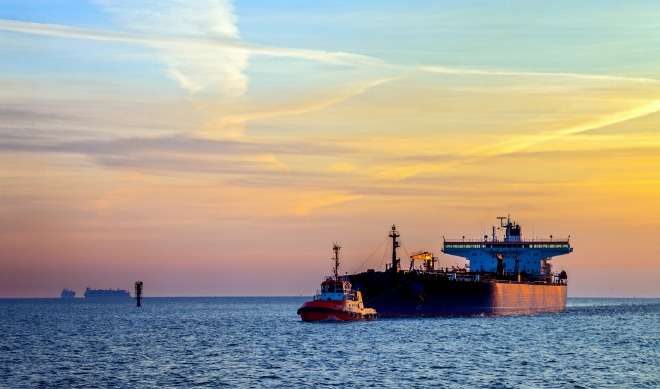Is shipping a climate friend or foe?

Maria Bruun Skipper, a director at Danish Shipping, helps set the scene for this week’s UN-convened COP23 climate talks taking place in Bonn.
Various stakeholders often criticise the shipping industry for being the foot-draggers when it comes to regulation which requires reduction of CO2 emissions. The recent intersessional meeting on CO2 at the IMO was no exception to what almost seems as a rule. Only this time the discussions were also ignited by a report from the think tank InfluenceMap. The report points at the industry influenced lobbying at IMO and names the shipping industry to be responsible for the slow pace at IMO when it comes to CO2 reduction agreements.
Without going into detail of the report I would highlight two points: First, provided that it is based on solid and data driven arguments lobbying per se is a completely legitimate part of modern decision making. The industry experts’ involvement as advisors during IMO meetings improves the often very technical legislation on safety and environment for global shipping. Secondly, to claim that the industry is the main culprit for the lack of progress would in all humbleness be an overestimation of the political influence of the industry. It is the political mandate given by governments and in some cases national parliaments that when push comes to shove decides the final legislative outcome. International shipping is fully committed to reducing its CO2 emissions, matching the ambition of the Paris Agreement. For instance, the international shipping industry i.e ICS, BIMCO, Intertanko and Intercargo, also known as the Roundtable Organizations brought the following three objectives to the table:
1. To maintain international shipping’s annual total CO2 emissions below 2008 levels
2. To reduce CO2 emissions per tonne-km, as an average across international shipping, by at least 50 pct. by 2050, compared to 2008
3. Reduce international shipping’s total annual CO2 emissions by an agreed percentage by 2050, compared to 2008, as a point on a continuing trajectory of CO2 emissions reduction
The clever reader will now immediately pose the question: How do these objectives match the Paris Agreement, and the answer is, that this can only be done if all IMO members states engage and commit themselves to a robust CO2 Reduction Strategy to be finally adopted by 2023, as laid out in the already agreed timeline. In other words: it is neither the sole responsibility of the industry nor a task that the industry can carry alone – IMO flag- and port states are key, if shipping shall deliver to the Paris Agreement on equal footing with the rest of the world.
Speaking of the rest of the world, the next round of UNFCCC negotiations kick off on Monday at COP23 in Bonn. Although the two year-old Paris Agreement was a major accomplishment which took years of negotiations to reach, the result was an agreement where countries on an individual basis decide on their Intended Nationally Determined Contributions (INDCs). Thus, the commitments made by governments are not legally binding.
Secondly, the three sectors agriculture, aviation and shipping are not covered by the INDSs for various good reasons, one being that it was extremely difficult to agree on reductions within these sectors. It is therefore a timely question to ask the critics of the shipping industry: Should shipping as an industry do what no international member state organisation at global level has been able to do i.e. lay out detailed proposals for binding targets as a point of departure for the negotiations?
That takes us back to the submission from the international shipping industry to the ongoing climate negotiations at IMO. The shipping industry does have a responsibility for its environmental footprint and is committed to reduce its emissions on equal footing with the rest of the world. The proposals from the shipping industry are by some stakeholders seen as unambitious, but at the end of the day these proposals are far more ambitious than proposals from a strong group of IMO member states that are very reluctant to adopt CO2 reduction measures for shipping.
Shipping is not expected to be the centre of attention during the negotiations in Bonn, but will definitely be discussed at the various side events that traditionally attract all relevant climate stakeholders. Does shipping need to raise its voice here? Yes, by all means. It is incredibly important to continue to discuss and to find pathways to reduction for the industry and most importantly to ensure that IMO remains the global regulator for the shipping industry. Danish Shipping will be in Bonn and is part of an event called Ambition 1.5°C: Global Shipping’s Action Plan together with engine manufactures, shipowners and NGOs. I hope that good ideas will come out of this and other events and that they can be brought back to the IMO.
The result of the second IMO Intersessional Working Group was as expected a step in the right direction, and I remain confident that when crunch time comes at the third and final Intersessional meeting in April 2018, IMO will adopt a robust strategy for CO2 reduction. The international shipping industry will continue to contribute constructively, and no matter how you look at it will continue to be more ambitious than the group of IMO member states that do not have proposals which includes concrete targets. So who is the climate friend or foe? You decide.

Refreshingly clear-eyed. Good to get a dispassionate, rational overview of what the situation is including the concrete proposals that the shipping industry has brought forward, but also the fact that this is ultimately a member state decision and it is the palpable disagreement between IMO member states which is stalling progress. I share the optimism that we will eventually get an ambitious strategy, largely led by the leadership of the industry. Thank you Maria Bruun Skipper for setting the record straight.